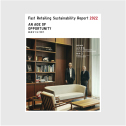Sustainability
Report 2022
AN AGE OF OPPORTUNITY

Text:MASASHI MATSUIE Photo:KEI KONDO

Creativity of individuals and the private sector; a key to shaping the future for the next generation
How did the world of science change during the COVID-19 pandemic?
Professor Shinya Yamanaka, who won the Nobel Prize in Physiology or Medicine, has been conducting research at Kyoto University, Japan,
and Gladstone Institutes, California, traveling back and forth between the countries while navigating travel restrictions.
Through his research, Professor Yamanaka is keeping a close eye on the frontline and the future.
Below is an edited version of discussions between Professor Yamanaka
and Tadashi Yanai, Chairman, President and CEO of Fast Retailing.
These discussions took place during a period of quarantine
for Professor Yamanaka after returning to Japan,
and later during an in-person meeting in Tokyo.
What the pandemic has revealed
YanaiYou have been actively communicating on the COVID-19 pandemic since it started.
YamanakaThank you. The question of how science can contribute to the world has always been on my mind while doing iPS cell research. However, most scientists, including myself, could not predict that COVID-19 would have such an impact on the world. The situation made me reflect as a scientist. Ever since, I felt I must continue to communicate to the public, even if the topic is beyond my field of expertise.
Yanait is also very important for companies to communicate.The pandemic has closed borders, isolated families and individuals, and brought everything to a halt. It has made us think about our responsibilities and how we should communicate when our actions are restricted. Now the world is so closely connected because of globalization. It has made me keenly aware of how serious the situation would be if these connections were lost. In other words, the pandemic has caused two crises.
YamanakaEven if society could overcome an infectious disease by cutting off connections, the social structure and economic activities would not be sustainable. It is very difficult to balance these two.
YanaiIt is not only scientists who failed to predict the future, but also politicians and economists, as well. We should not just close doors but find ways to open them wisely in emergency situations. We must work together all over the world to spread and apply our knowledge globally. Otherwise, life will stop like cells without blood flow.

This conversation was first held online on October 12, 2021, and then at the Fast Retailing Ariake Office on FAST RETAILING SUSTAINABILITY REPORT 2022 October 19.
YamanakaThe field of science has become more active. The scientific world is usually driven by a principle of fierce competition. However, many of us decided to switch from competition to cooperation early on. There were a lot of reactions not only from virus researchers but also from people in different fields, utilizing their own knowledge and specialties. This was particularly clear in the U.S. It reminded me how that country is the driving force of global research innovations. The U.S. was at the forefront of efforts to translate research findings into reality. At the same time, it suffered from having the highest number of infected people and deaths in the world. I saw two sides of the country.
YanaiA certain period of quarantine is required when we return to Japan. It can be stressful to travel back and forth between Japan and the U.S., but you have visited the U.S. frequently.
YamanakaIt is because my research is based in Kyoto and San Francisco. The reason I tolerate the strict travel regulations is because in the U.S., I can access cutting edge research and feel the enthusiasm of the researchers directly. There are things that cannot be conveyed precisely on the Internet.
YanaiWhen the globalized world is fragmented, we come to realize that there are tangible things which are indispensable to human beings. These things cannot be captured by the Internet. That is why we need to monitor the infection situation and adjust inspection and quarantine systems to facilitate people crossing borders with greater agility. Otherwise, we will continue to lose the dynamism created by direct interactions.
Yamanaka2020 was like fighting without protective gear. However, it is a more reassuring situation now, because we have preventive measures, including wearing masks, the protection of vaccines and more sophisticated treatment methods even if we do get infected. But more harmful variants may still emerge. It is paramount to prepare ourselves thoroughly, especially when the number of infected people decreases.
YanaiWhen social and economic conditions improve, we must take a good look at what is going on from a global perspective rather than just rejoicing in the recovery of our own country. We need to consider and implement support for countries and regions that are in difficult situations. Otherwise, the entire world will not be able to coexist and prosper together. Or more precisely, I believe that it is nothing but an illusion that one’s own country can recover single-handedly. It is clearer than ever that the entire world is connected at every corner, as proven by the pandemic.

-
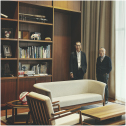
-
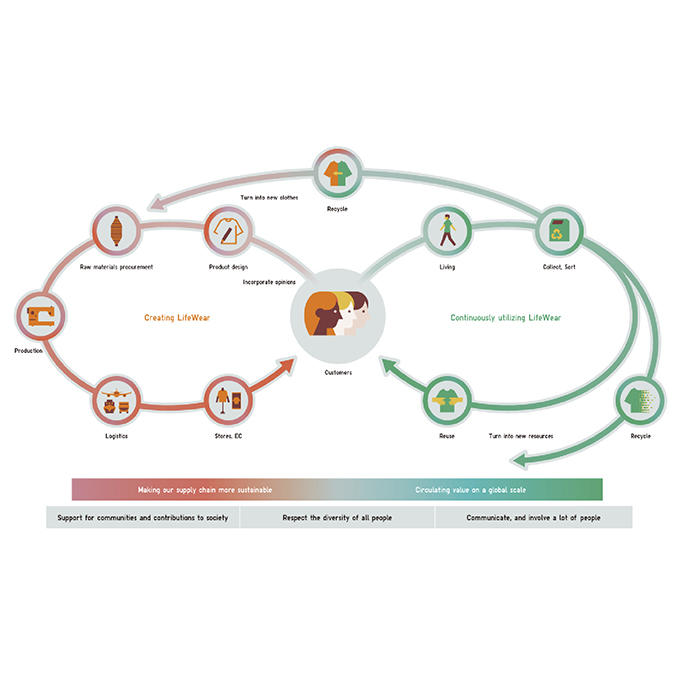
LifeWear: A New Industry
-
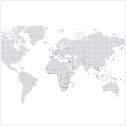
Giving Back to the World
-

Humanity + Technology
-

Generation Next, Finding a Way
-
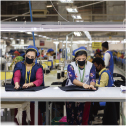
Worker Wellbeing as a Priority
-
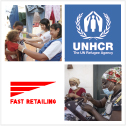
Ten Years with Refugees
-
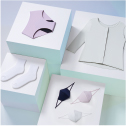
Clothes for everyday life
-
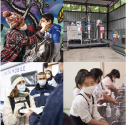
Putting People First
-
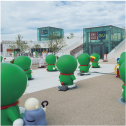
Unlocking The Power of Clothing
Doraemon Sustainability Mode ©Fujiko-Pro
-
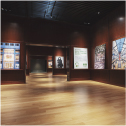
Corporate Governance
-

FAST RETAILING WAY
-
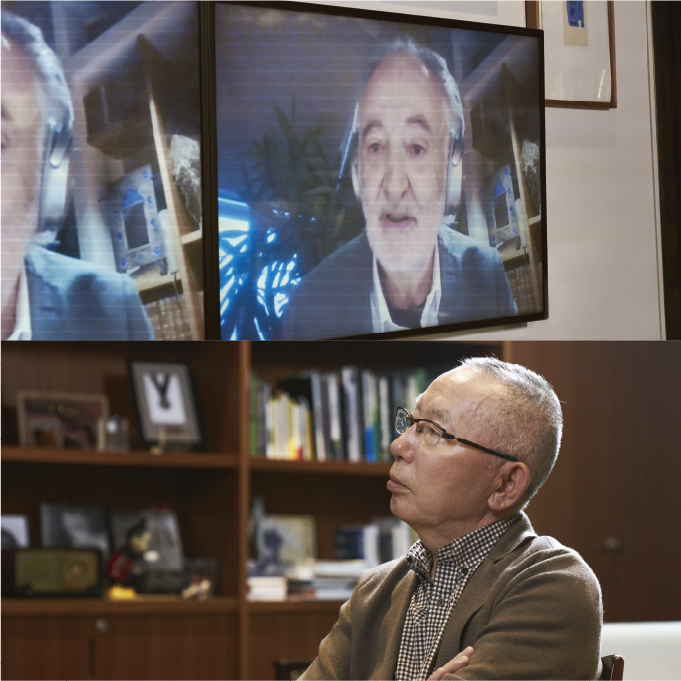
Sustainability Report 2021[ARCHIVE]


